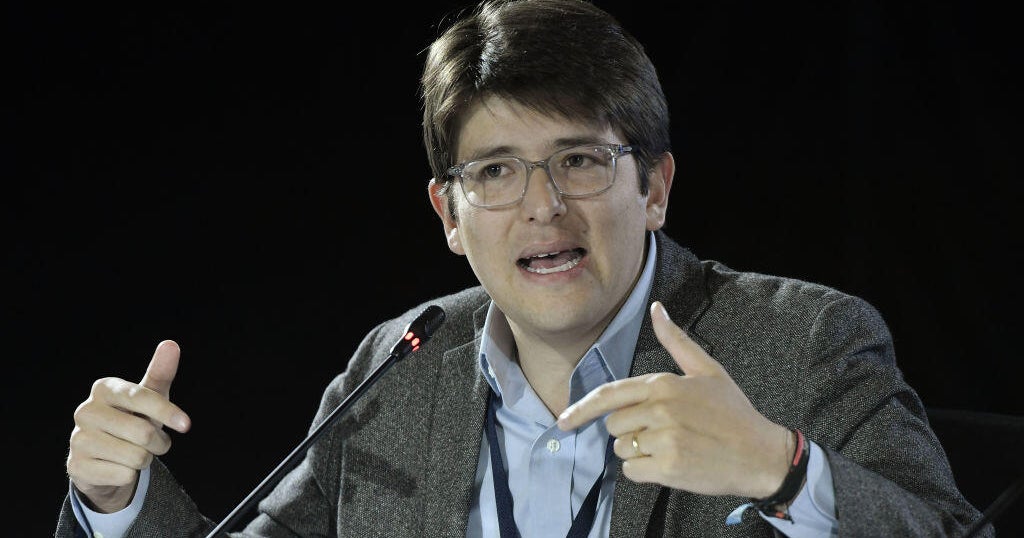Poland will head towards a run-off presidential vote on June 1 pitting pro-EU Warsaw Mayor Rafal Trzaskowski against nationalist historian Karol Nawrocki.
The initial round of elections yielded narrow results, with 31.36 percent of the vote going to Trzaskowski and Nawrocki garnering 29.54 percent. The stakes for the EU and NATO member are high – and so is the level of disinformation and cyberattacks seen in the run-up to the election.
Fearing an onslaught of Russian-linked disinformation campaigns and cyberattacks during the elections, the NASK national security agency deployed a new initiative months before the vote to identify and eliminate the threats.
The “cyber umbrella” initiative, part of Poland’s larger effort to spend over €2 billion on cybersecurity, allows members of the public to report misinformation and stay up to date on election-related information through an online platform.
But the initial round of presidential elections showed how difficult it is to weather the cyber storm in a volatile landscape characterised by widespread conspiracy theories and foreign interference.
“The Polish authorities are doing a good job, despite a very difficult political and geopolitical context,” said Saman Nazari, a co-author of a risk assessment report ahead of the 2025 Polish presidential elections along with pro-democracy NGO Alliance4Europe, Debunk.org and the Institute for Strategic Dialogue.
As Russia’s war in Ukraine drags on, false narratives abound online about Poland’s role in the conflict. “We have encountered narratives about Polish soldiers already fighting in Ukraine, Poland giving away all its military resources away to Ukraine, and about Russia wanting peace and the West wanting war,” said Wojtowicz.
Fake news about Polish soldiers in Ukraine
To display this content from X (Twitter), you must enable advertisement tracking and audience measurement.
The analyst added that much of the disinformation aimed to demotivate people from voting. “Publications online presented the EU as a broken institution or said that the EU will decide the outcome of the vote – mostly it was information chaos,” said Wojtowicz.
More than 20 percent of voters opted for candidates on the far right, whose conservative and nationalistic worldviews overlap with Nawrocki's.
Sławomir Mentzen of the hard-right Confederation party won 14.8 percent, while – in one of the biggest electoral surprises – a far-right extremist, Grzegorz Braun, won over 6 percent.
Both have embraced antisemitic and anti-Ukrainian language.
“Many bot and troll accounts propagating Braun’s positions have appeared since Sunday’s election,” said Wojtowicz. “Those who are Braun-leaning might be very difficult to pull back from their conspiracy beliefs, but NASK may be able to convince other people who are less anchored in conspiracy theories,” she added.
Poland battles Russian destabilisation efforts ahead of presidential vote
To display this content from YouTube, you must enable advertisement tracking and audience measurement.
One of your browser extensions seems to be blocking the video player from loading. To watch this content, you may need to disable it on this site.

06:08
Foreign meddling
The dissolution of the Soviet Union may have made the hackers who grew up in post-Soviet Russia some of the most active and dangerous in the world, said Russian internet security experts, Irina Borogan and Andrei Soldatov.
The changes during the 1990s in Russia saw huge defence industry cutbacks – the main employer of the Soviet technical intelligentsia, they said.
That fallout is likely having its effect on Poland’s elections today. A group of Russian hackers attacked the websites of Poland's ruling party, Prime Minister Donald Tusk said on Friday. "Two days before the elections, a group of Russian hackers operating on Telegram attacked the websites of the Civic Platform. The Left and (agrarian party) PSL websites are also targeted," Tusk wrote on social media platform X.
To display this content from X (Twitter), you must enable advertisement tracking and audience measurement.
Other Russia-linked foreign actors have also been discovered interfering with the campaign. “The Belarusian state radio has been conducting an influence operation by promoting pro-Russian candidate Maciej Maciak,” said Nazari, citing information from an upcoming report in collaboration with the Digital Forensic Research Lab. “They are promoting him, interviewing him, and calling for people to give him signatures – and it’s all being done in Polish.”
“[The non-profit organisation] Alliance4Europe and [global network] Science Feedback flagged the Belarusian channel to the social media platforms in December last year for being accessible to EU audiences despite EU sanctions [. . .] TikTok has now geofenced the channel from European audiences,” said Nazari.
The researcher noted that TikTok only acted last week after the influence operation was flagged a second time – meaning the damage had already been done.
“The election umbrella is not perfect but it’s a very good idea,” said Wojtowicz. The ingenuity of the programme resides in its reliance on civil society to face external threats. As for the internal threats, the initiative “will have to use the algorithm in its favour” to reach the widest possible public.
(With AP)











 English (US) ·
English (US) ·